You surely did something bizarre the last time you downed a shot of firewater or ethanol to let everybody around know that the alcohol nearly seared your guts. This sensation is what the industry stalwarts refer to as "feeling the burn". More often than not, even spirits infused with a higher proportion of ethanol alcohol or ethyl alcohol can leave you with a burning sensation. So, the moot question that arises from the above assertion is why does give you that burning sensation?
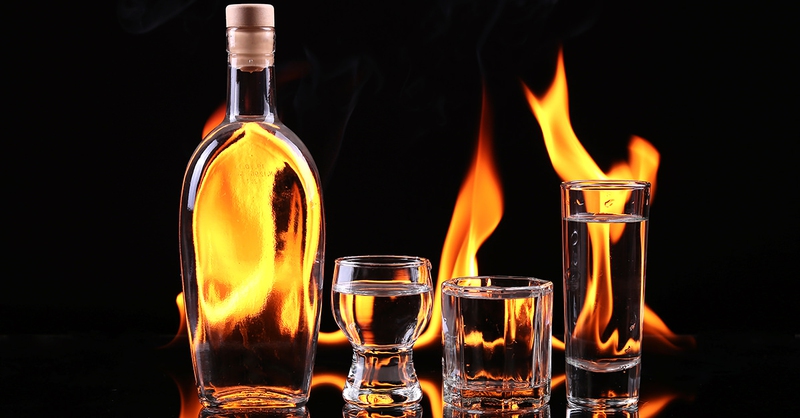
Why Does Alcohol Burn?
Irritate skin
Liquors, spirits, and other distilled beverages having a high concentration of alcohol like whiskey or vodka have the tendency to aggravate the mucosal membrane inside the mouth. This burning sensation is somewhat similar to the feeling you experience when you bite on a green chilly or jalapeno.
Deprive moisture
Chemically, alcohol works as a solvent which means it draws moisture away from your mouth, leaving you feeling dry or dehydrated which can also produce that burning sensation. The searing feeling that you get when you’ve had an aperitif mostly limited only to the mouth and the esophagus.
Expand blood vessels
You must have experienced the feeling of warmth enveloping your stomach after downing a peg of strong malt whiskey or rum. This warming is linked with the dilation of the blood vessels which usually happens as a result of drinking beverages with a high ABV (alcohol by volume). Be in the know that excessive consumption of alcoholic beverages with ABV higher than 20% can lead to spider veins.
In this tutorial on "why does alcohol burn?" keep the following facts in mind:
Beers marked "strong" or "extra strong" usually have an ABV above 11%;
The same goes for wines. Strong wines come with 15%-16% ABV markings;
Heady spirits generally carry a label marked “40% ABV”, but this is just beginning.
You must have gathered by now that the more alcohol your drink contains, the more intense will the burn be.
Trigger skin reaction
Your epidermis is replete with specialized protein receptors known as VR1 that signals the brain if you experience high temperatures. Drinking or rubbing alcohol certainly does not produce an exothermic reaction but somehow lowers the heat tolerance limit of the receptors by nearly 10 degrees. So, the healthy skin has a normal body temperature which can set off the VR1 receptors due to the lowered heat tolerance limit.
Why Does Drinking Alcohol Make You Drunk?
Understanding how alcohol makes you tipsy is undoubtedly the most riveting section of "Why does alcohol burn?" Depending on how many pegs you knock down, ethyl alcohol can make you feel pleasantly inebriated or could even make you act like an upcountry boor with brazenness. Gulp down one too many and chances are that you may pass out.
So, what is in the alcohol that drinking just a peg or two has an intoxicating effect whereas gulping down six rounds of Absolut vodka in a row makes you throw up? Owe your drunkenness and hangovers to the acetaldehyde in the alcohol that offers alcohol its stimulating power. As alcohol passes down through your gullet, it enters the bloodstream and is subsequently carried off to the heart and eventually to your brain before it travels downwards.
In the brain, alcohol has a tranquilizing effect on the central nervous system. Besides, the acetaldehyde and the acetic acid in the alcohol impede the action of a neurotransmitter known as glutamate which makes you respond or react to external stimuli in a very slow manner. All these together affect your taste, hearing and sight, make you feel dizzy, and get you high and drunk.
How to tell if someone is drunk
Drunks exhibit the following main symptoms:
Giddiness
A feeling of complete disorientation where you tend to lose sense
Walking in a wobbly manner
Compromised reasoning ability and motor coordination
Nausea or vomiting
Note: In extreme cases, all these effects of the alcohol on the brain, individually and in combination, can severely and adversely affect your heart rate and breathing. Acute intoxication can lead to alcoholic poisoning causing you to become unconscious. You may may never regain consciousness if the brain is unable to send signals to the heart to renew pumping.
Does Alcohol Burn Off in Cooking?
Can alcohol be cooked out of foods?
Alcohol is a volatile compound that undergoes evaporation even in the absence of heat. However, the evaporation gets intensified when it is added in cooking to impart a special flavor to a dish. As for our question, alcohol can be cooked out of foods, but the exact amount or quantity that is cooked off depends greatly and mainly on the intensity of heat and the duration of cooking.
Know how much alcohol remains in foods
Up to almost 85% of alcohol remains when the beverage is added to boiling liquid that has been removed from heat.
About 70% of alcohol remains if it is stored overnight without heat.
About 40% of alcohol remains if the dish will be cooked for about 15 minutes.
Just 5% of alcohol remains after it is added to a dish which has to be cooked for 2.5 hours.
All in all, with more heat and longer cooking time, there will be less and less alcohol remaining in foods.



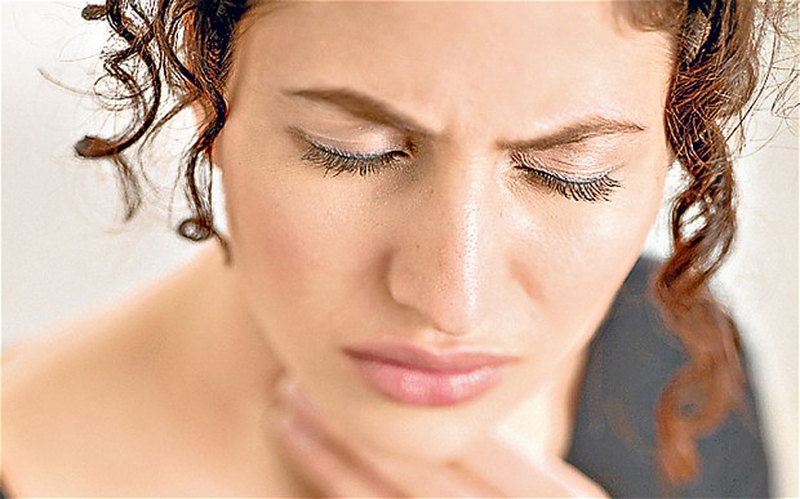
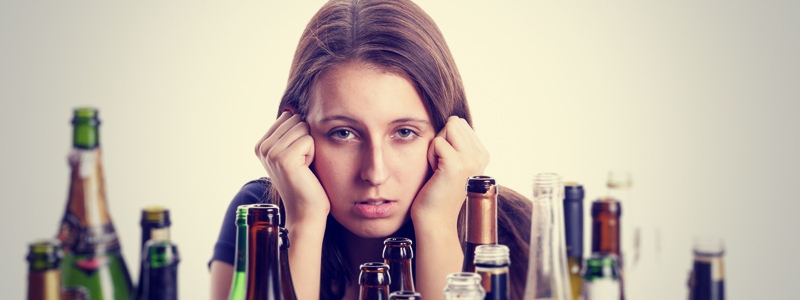
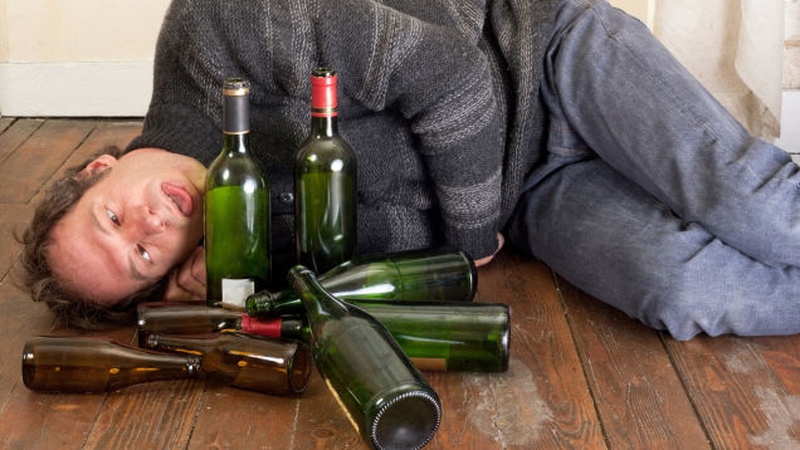

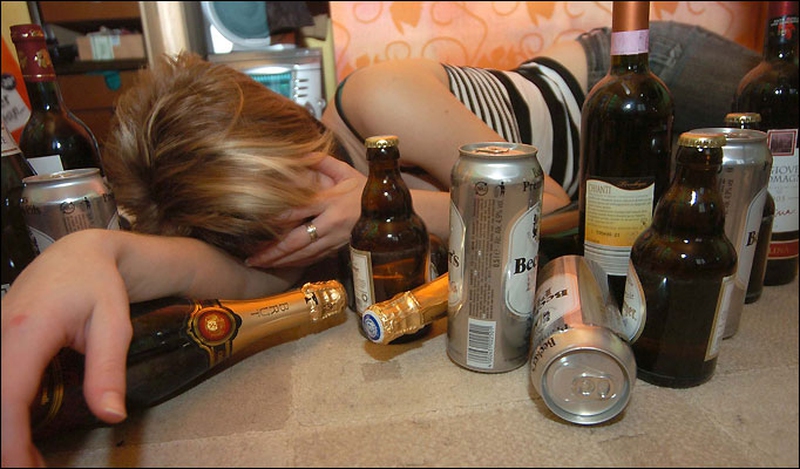
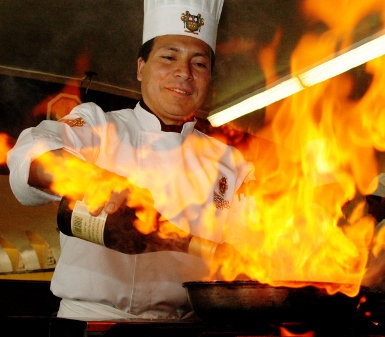
View All Comments /Add Comment